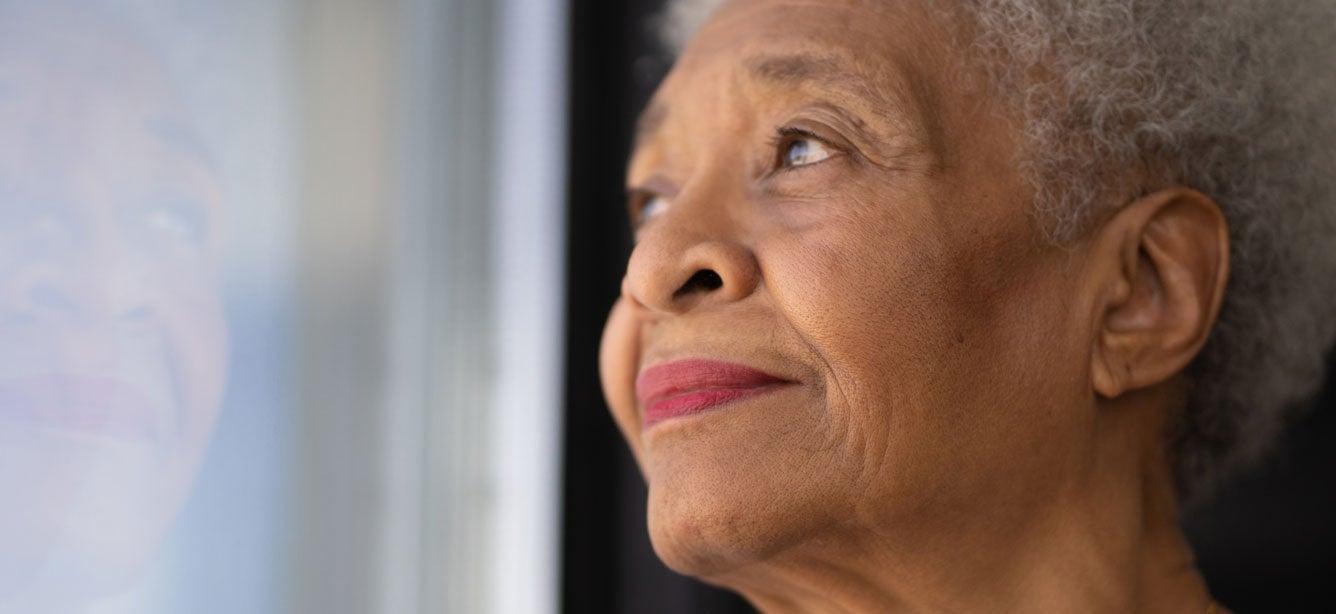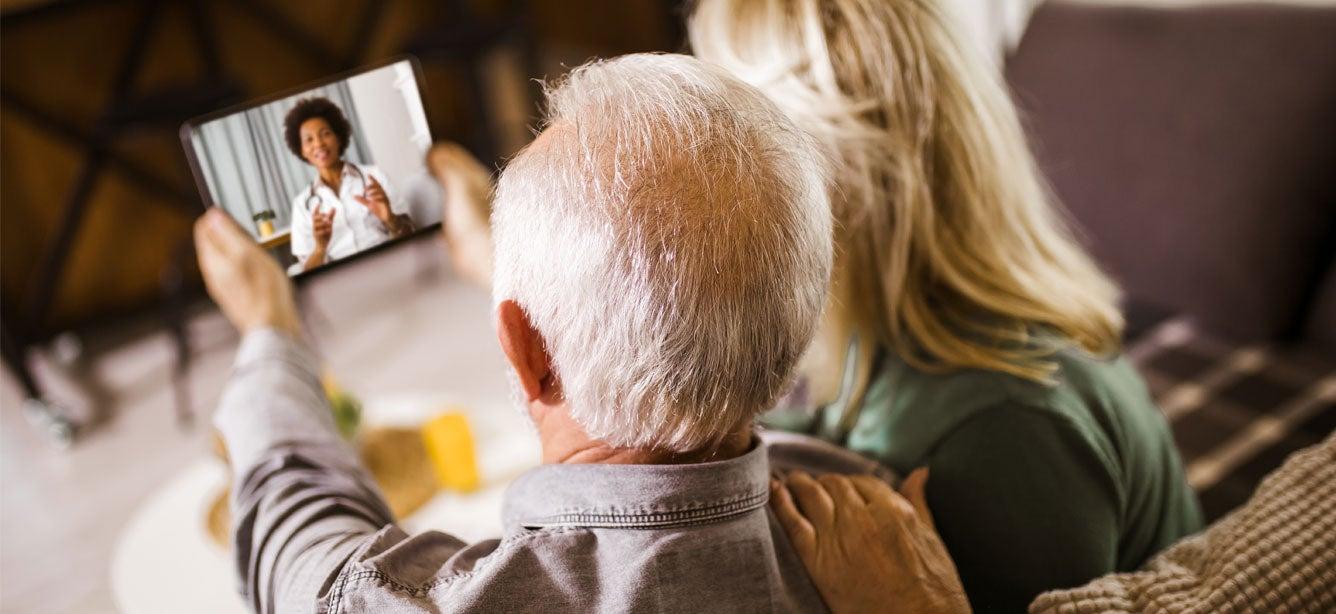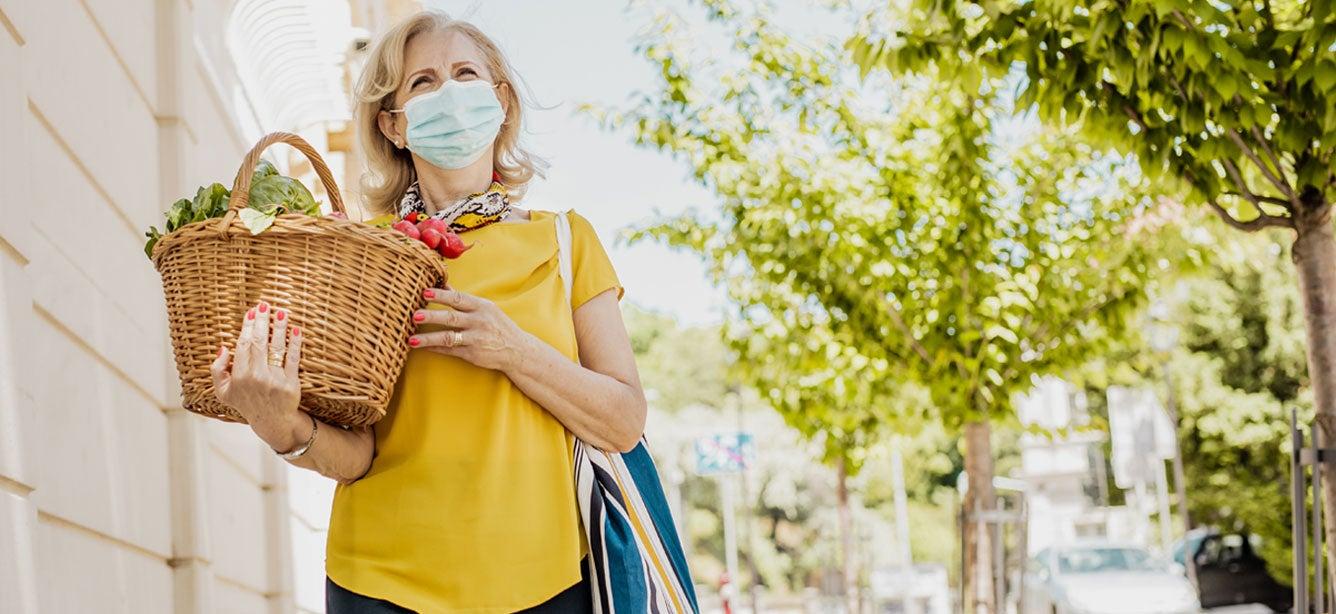
Related Topics
As seen on HealthwellFoundation.org from the Real World Health Care Editorial Staff on March 31, 2021.
Stay-at-home and social distancing mandates during the COVID-19 pandemic have forced nearly everyone to become more socially isolated than ever before, according to the Real World Health Care Editorial Staff. However, the effects of social isolation among older adults may be more pronounced and have more dire consequences than among people of other ages.
“Placing the COVID pandemic aside for a moment, societal trends have led us to the point where older adults are more likely to be isolated or lonely,” said Kathleen Zuke, MPH, of the Center for Healthy Aging, National Council on Aging (NCOA).
“They are no longer in the workforce, are more likely to live alone, and have fewer social connections over time. In addition, their extended families may be more geographically dispersed than in past generations, making it difficult to maintain in-person familial contact.”
The pandemic, said Zuke, has exacerbated social isolation and loneliness, as well as other issues that older adults commonly face, including economic insecurity and difficulty accessing health care services.
Zuke cautioned that the effects of social isolation vary from individual to individual and noted that social isolation doesn’t always lead to loneliness. She said some older individuals without many social or community connections feel content, while others with many connections and lots of family support may feel a profound sense of loneliness.
Effects on Physical and Mental Health
While social relationships are widely considered crucial to emotional well-being, Zuke said social isolation and loneliness can also have a negative impact on physical health. She pointed to a 2018 study on potential health risk factors of social isolation and loneliness, in which the author concluded that being socially connected significantly reduces risk for premature mortality, while being socially unconnected significantly increases risk. Moreover, these social isolation factors have a larger impact on mortality than factors that currently receive substantial public health attention such as obesity, physical inactivity and air pollution.
The study presented evidence that social isolation increases risk for depression, cognitive decline, and dementia, and directly influences medication/treatment adherence, blood pressure, immune functioning and inflammation, as well as the ability to conduct activities of daily living (ADL).
The effects of COVID isolation may be particularly acute among older adults in long-term care (LTC) facilities, as outlined in an AARP report that suggests feelings of loneliness, abandonment, despair and fear among residents – and their toll on physical and neurological health – are pushing the pandemic’s death toll higher.
“Before the pandemic, individuals in LTC facilities could benefit from the social connections and mental stimulation provided by visiting friends and family,” Zuke said. “Now, while staff members can try to provide interactions, they also have other tasks they need to focus on, making it impossible for them to be the sole source of interaction. Fortunately, restrictions are easing up somewhat.”
Zuke urged older adults and their families to stay connected as much as possible while waiting for restrictions to be lifted. She suggested setting a regular time on a weekly basis – make it a new habit – to connect with loved ones via phone, email or video chat.
Community Organizations Struggled to Meet Needs
Before the pandemic, many older adults turned to community organizations and senior centers for social connections, meals, transportation and other services. Once the pandemic struck, those organizations had to pivot from in-person to online services. Some of them have struggled, according to Zuke, who added that the NCOA has worked hard throughout the pandemic to support community organizations and share best practices among them.
The NCOA surveyed senior-focused community organizations three times throughout 2020 (April, July and October) to understand the pandemic’s impact. The most recent survey (October) found that several months in, the pandemic was continuing to impact organizations’ resources, with just under half losing funding and having to reduce staff. About a third of organizations were making plans to reopen following local health guidelines, while many continued to expand their virtual, phone and home delivery services including meals, caregiver support and benefits counseling.
“One of the biggest takeaways was the switch from providing in-person meals to home-delivered meals,” said Zuke. “That switch created volume and process problems, especially in the beginning, as organizations scrambled for logistical support and faced staffing issues among their largely older volunteer base.”
Technology access and skills also have impacted community organizations supporting older adults, from the perspectives of both organization staff/volunteers and clients. The NCOA’s July survey found that only 38 percent of older adults feel comfortable using the internet and just under half have broadband access.
“Community organizations are being placed in new roles as technology educators,” Zuke said. “They’ve also had to get themselves acquainted with running their organizations and providing services via Zoom. Some are more tech-savvy than others, which gives them a leg up on adopting new services and getting their clients onboard.”
Resources for older adults
Regardless of their struggles, community organizations remain one of the best sources of help for older adults, according to Zuke. In many cases, they are bolstering the resources of health care providers by providing health education and helping older adults self-manage chronic health conditions.
NCOA offers a wide range of online COVID-19 resources for older adults and caregivers. A special webpage outlines what older adults need to know about COVID-19 vaccines, including important tips from the federal government about vaccine-related scams.
NCOA also will offer a free, full-day Older Adult Mental Health Awareness Day Symposium on May 6. The event, which will include discussion of the impacts of social isolation and loneliness during the pandemic, is geared to public health practitioners, professionals in the aging network, mental health providers, health care professionals and anyone interested in the mental health of older adults.
“NCOA’s mission is to ensure that older adults live with dignity, purpose and security,” Zuke concluded. “Those goals are more challenging now, but we are re-doubling our focus on those who are struggling and supporting them in their local communities to make sure their needs are being met.”


